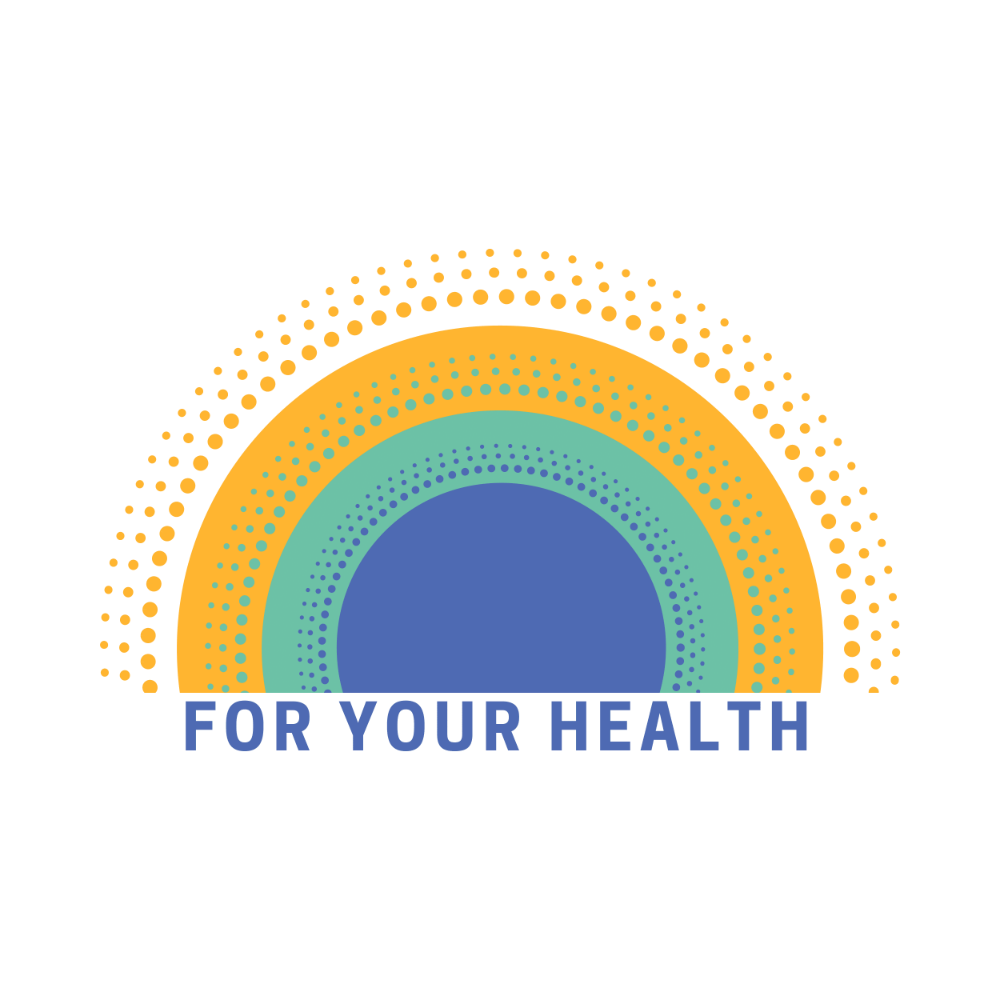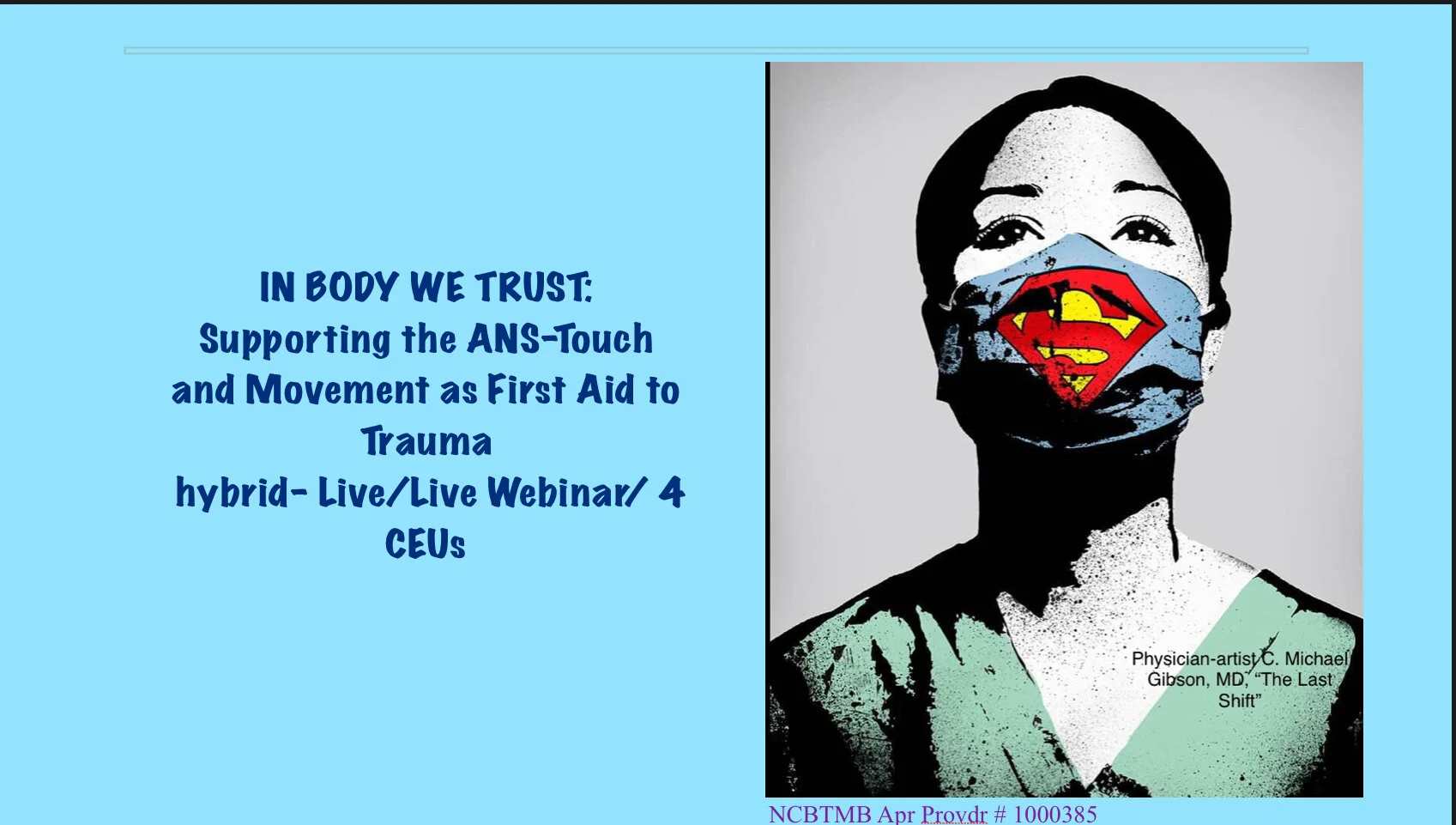The Trauma, The Body and the Manual Therapy - Practice and Education, in times of Pandemic and evolving Social Change
We live in Bodies that feel increasingly unsafe.
Pandemics, and now vaccine distribution inequities, systemic racism, climate change, sexual assault, the mass shootings, the crisis of liberal democracy- all create vulnerability that feels quite visceral.
At least, the whole world is talking about Trauma and the Body, finally.
Who knows it better than you!
Who else, what other profession in the world, spends so much time in physical contact with The Body( only the body? Really?)
You own it.
As I’m writing, and keep adding to the list of questions to you/us (yes , without You/Us, Us/You would not exist !), I realize I’m doing it because I can no longer remain silent! I can not NOT ask and share with you the questions that I feel deep in my whole body.
Please, write back!
What is trauma?
This is the definition from the Medical Dictionary:
“Trauma - τραύμα(Gr)- wound, hurt (Traumata ,pl)
1.
a. Serious injury to the body, as from physical violence or an accident: abdominal trauma.
b. Severe emotional or mental distress caused by an experience: He experienced trauma for years after his divorce.
2.
a. An experience that causes severe anxiety or emotional distress, such as rape or combat: memories that persist after a trauma occurs.
b. An event or situation that causes great disruption or suffering: the economic trauma of the recession.”
And check this definition from Integrated Listening Systems(integratedlistening.com) :
“Trauma is the response to a deeply distressing or disturbing event that overwhelms an individual’s ability to cope, causes feelings of helplessness, diminishes their sense of self and their ability to feel the full range of emotions and experiences.”
Do you believe there is one definition of it, and what’s YOUR DEFINITION of it?
But more importantly, how do you experience it?
Is there a difference in experiencing physical and nonphysical trauma?
Pain, shortness of breath (or “I can’t breath”), sleeplessness, anxiety, shakiness, feel teetered, panicky? Or nausea, dizziness, changes in appetite, headaches, gastrointestinal problems?
Please, feel free to finish the list with your own responses.
Do you notice that the only interface we have for experiencing it is The Body?
The Body - your body that is the biography of your Mind.
“In times of chaos the body is an anchor. In times of mistrust the body is a source of wisdom. And in times of disconnection the body is how we connect to ourselves, to each other and the planet”. M. Walsh - From his book here .
Recognizing the signs of trauma in the body is inevitable for the Massage/Manual Therapists.
Inevitable because the body remembers everything - it’s like your self written diary, as this excellent very accessible book by Dr. Bessel van Der Kolk reminds us The Body Keeps the Score by Bessel van der Kolk, M.D. ...www.penguinrandomhouse.com › books › the-body-keeps-the-score-...
This is only one example of the avalanche of writings and research by professionals in the fields of psychology/psychiatry who realized that involving the Body enhances the therapeutic outcome.
WHERE DO WE STAND on this, as the profession that spends the longest time with the Body, by definition, by default?
What if the first encounter with trauma happens during the Massage Therapy session? The Massage therapist can frequently be the first witness of trauma released in the body.
The inevitable catalyzing effect of touch is a powerful tool for the educated/experienced practitioner. As reflective individuals, MTs have tremendous potential to become a resource for First Aid to Trauma released in the body. Frequently, touch is the first connection of the patient to Self.
And really, how much longer we will pretend that we work and exert effect only on the body? Do you ask your clients/patients to leave their minds at the door, when they enter?
Or do we still hang to the fragmented model of viewing human health as physical and mental…
How do our educational models in Manual Therapies inform the professionals on their key role in raising awareness of perception of self and awareness of emotions through touch?
No matter how long we will remain comfortably oblivious to it, this is what the patients say about our touch:
Can we continue to allow MT to keep bringing this awareness blindfoldedly? Like we don’t know or we don’t care what is happening? Do we want to know what is happening?
Do you think we would be able to help this process better, if we DO KNOW what and how it is happening?
DO WE NEED TO ADD SOME TRAUMA-INFORMED STUDIES TO OUR CURRICULA?
Research shows that trauma frequently results in PAIN and hyper- or hypotonia - the ultimate symptoms faced in MT setting. The process is conveyed by a cascade of biological and neurological events that change the interoceptive processes into the vicious cycle of an on-going autonomic firing. Does our curricula(entry- or mastery level) check on the fragmented model of anatomy versus the concept of “one nervous system “ and the ANS functions and contributions to health?
MT offers an alternative but unique way to modify temporary sensitization states( like pain) through the interaction with peripheral tissues. Ok, do we really work only on the loco-motor system …
How do we work with hypertonic versus hypotonic muscles?
When we work with the tissues we constantly talk and usually try to “relax” tight muscles , “to release” tension, to “reduce” stress”, we constantly try to diminish something that has accumulated.
What happens when we constantly reduce accumulated hypertonus and expose low toned tissues ?
As Merete Holm Brantbjerg (her website ) says:
“Hypo-states are a hidden challenge in coping with stress and trauma”
How do we work with the tissues that are in a hypo- arousal state?
That lack energy?
What is Energy?
How does it translate in our perception- how does it feel in our hands?
Why do hyper-toned tissues refuse to relax?
Why does the patient return next week with the same issue?
What is motor skills and how do they relate to psychomotor skills?
What is psychomotor?
Why is it psychomotor and not motorpsychic???
Do we have to have a psychology field license to ask a question?
Or to hear the answer?
How do we Un- hear it ???
Where does the body end?
Where does the psyche start?
Where shall we stop learning about the Body/Mind because learning farther will be ”out of our scope”???
WHO DEFINES OUR SCOPE ???
What is the concept of Trauma-informed Bodywork ?
I mean, what would be the downside of adding some psychology to the MT curricula?
Why do our best delivered techniques/modalities/methods don’t bring the desired relaxation in a hypertonic tissue ? Why during one session the pain is resolved but another time it persists ...
What is the concept of “techniques and methods” doing to human health?
Can we separate Touch from Movement?
Where do our MT Educational standards stand on the concept of incorporating Movement in Massage education?
What is the concept of dosage? Microdosing? How do we use it in relation to psychomotor activities of the muscles - same muscles once taking us to the protests, the next day to the police station and next day to the vaccination station ?
Has Social Injustice popped on our tables? In our classrooms?
I see most of us are back in our practices and continuing to offer the population support for health, as usual .. Really? Business As usual?!
Give me a break!
How are you dealing with the long tail of symptoms and fatigue lingering in the bodies of the people recovering from Covid infection? How are you doing with your own fatigue?? ( going for a massage, I guess😍)
Or in the bodies of those recovering from the protests or any encounter with social injustice?
What do you find in the bodies of the policemen you are working with, in the bodies of the protester(s) on your tables?
What do you notice in your own body?
How is that feeling different from other traumatic experiences?
Are you ready to start transforming(at least, unpacking) our own complex relationship(s) with power, our own history of oppression and privilege, and how our lived experiences show up in our own bodies?
Are you ready to explore how Touch- the very core modality describing MT profession, as interactive nonverbal behavior, translates in the asymmetrical communications of power, privilege or HEALING, and do we have a conscious choice in how to use it?
If you are, join me/us in the Embodiment Zoom Room “Touch, Dance, Discover”(January 7th)
Here is the link: Join Zoom Meeting
https://us04web.zoom.us/j/2157622576?pwd=YSszK0QzRGFPSG9VcTU1ZzM0RXBVZz09
…And in the comments, bellow.
The questions that keep arising for me are not for the verbal mind, but, as J.P.Barral would say are ‘formulated within the tissues of the body: bones, muscles, organs, nerves and brain’, and that the practice of this questioning requires immersing fully in this changing tactile experience through active sensorial dialogue: listening and responding.
Is there unnecessary knowledge?
“When I believe I know where down is, I am always wrong!
Only gravity has that information.
If I am not asking gravity for the direction of down, my idea cannot be correct.
In this work knowledge can only be a question!
What a relief!”
Lepkoff(2008)
What is your body saying to all this questions?
Run them by/through your body!
See if the answers and discoveries will help your purpose.
Bring your questions and your answers to this blog - ask, embody, share, discuss! DISCOVER !
Right here, in the box below.
I can’t wait to hear from you - to co-sense, co-learn and co-create with you!
REFERENCES:
The Effect of Massage on the Cardiac Autonomic Nervous System and Markers of Inflammation in Night Shift Workers: a Pilot Randomized Crossover Trialhttps://www.ncbi.nlm.nih.gov/pmc/articles/PMC7454237/
Distinction of self-produced touch and social touch at cortical and spinal cord levels: https://www.pnas.org/content/116/6/2290
C-tactile afferent stimulating touch carries a positive affective valuehttps://www.ncbi.nlm.nih.gov/pmc/articles/PMC5345811/
Architecture of the Cutaneous Autonomic Nervous System:
https://www.ncbi.nlm.nih.gov/pmc/articles/PMC6746903//
Massage Therapy for Psychiatric Disorders:
https://www.ncbi.nlm.nih.gov/pmc/articles/PMC6519566/
Justice in English Language Teaching:
https://www.academia.edu/24730941/Sociasocial Justice_in_English_Language_Teaching
Equity, diversity, inclusion task-force update from AFMTE:
https://www.afmte.org/equity-diversity-inclusion-task-force-update/
More to come……

